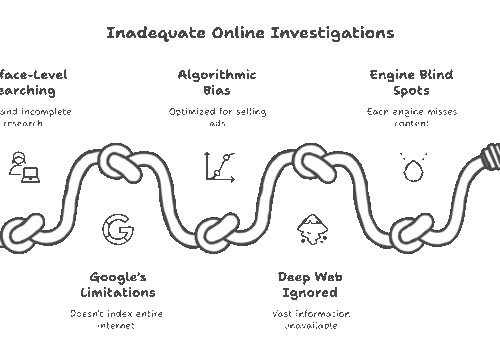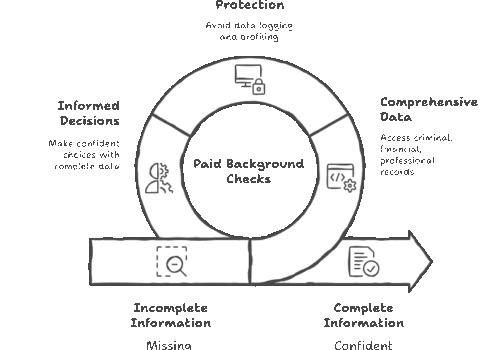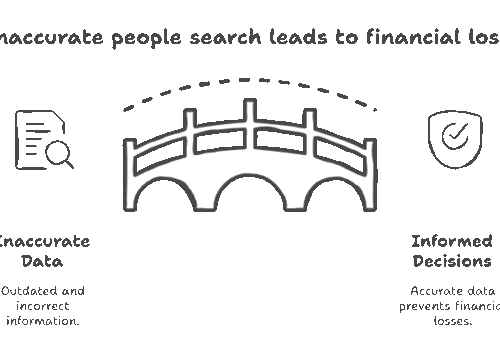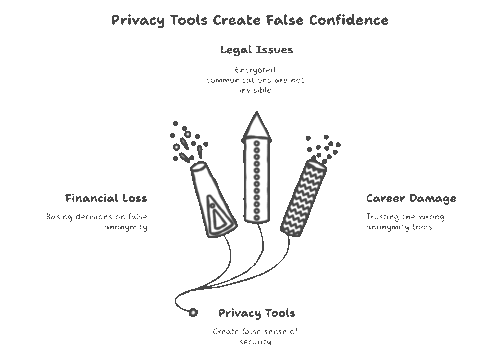Landlord Secrets: What Really Gets You Approved for a Rental
Look, I’ve been a landlord for 11 years now, and I’m tired of watching good people torpedo their rental applications over completely preventable mistakes. Just last month, I had this perfect tenant candidate – great job, solid income, excellent references – get denied by three different landlords before reaching me. Why? Because nobody had bothered to explain that her student loan default from 2019 was showing up as a collections account on her credit report, making her look like a deadbeat.
Here’s what kills me: the rental market is brutal right now, with qualified applicants competing for every decent property, and most people are walking into landlord meetings completely blind. They think it’s about being a nice person and having enough money for first month’s rent. Wrong.
I’ve seen software engineers making $120K get denied for apartments, while minimum-wage workers with perfect rental histories get approved instantly. The difference? Understanding what landlords actually care about versus what you think they care about.
After screening over 400 applicants and talking to dozens of other property owners, I can tell you exactly what we’re looking for, what will get you instantly rejected, and – most importantly – how to position yourself as the tenant we actually want to call back.
Because here’s the thing: landlords aren’t trying to make your life difficult. We’re trying to avoid losing money. And once you understand that motivation, everything else makes perfect sense.
Why Landlords Are Paranoid (And Why That Affects You)
You want to know why landlords seem obsessive about screening? Because one bad tenant can cost us $15,000-25,000 in lost rent, legal fees, and property damage. That’s not an exaggeration – that’s what I paid last year dealing with a tenant who stopped paying rent in month three and took eight months to evict.
My buddy Tom owns a duplex across town. Beautiful property, recently renovated, should be a goldmine. Instead, he’s been dealing with a nightmare tenant for 14 months who’s behind $18,000 in rent and has caused enough damage that he’ll need to replace the flooring and repaint everything. The eviction process is still ongoing, costing him another $400 per month in legal fees.
These aren’t rare horror stories – this is why every landlord you meet seems slightly paranoid about who they rent to. We’ve all been burned, or we know someone who has.
But here’s what tenants don’t realize: we want to say yes. Empty units cost us money every day. My mortgage payment doesn’t stop because the unit’s vacant. Property taxes keep coming. Insurance doesn’t pause. Every day a good property sits empty costs me $120 in carrying costs.
So when I’m screening applicants, I’m not looking for reasons to reject people – I’m looking for reasons to approve them. The problem is, most applicants make this impossible by not understanding what actually matters to me as a business owner.
The Numbers Game: What We Actually Check (And Why)
Let me break down what I look at, in order of importance, and what each piece of information actually tells me about you as a potential tenant.
Credit Score (But Not How You Think)
Everyone obsesses over credit scores, but here’s what I’m really looking for: payment patterns, not perfection.
I’d rather rent to someone with a 650 credit score who’s never missed a payment than someone with a 750 who’s had three late payments in the past year. Why? Because rent is due on the first, every month, no exceptions. I need to know you understand that concept.
Last year, I approved a tenant with a 620 credit score because her report showed something beautiful: 47 consecutive months of on-time payments across five different accounts. Her score was low because of old student debt, but her behavior pattern was exactly what I wanted to see.
Compare that to another applicant with a 780 score who had missed two car payments in the past six months. “Times were tight,” she explained. Guess what? Times are always tight for somebody. I need tenants who prioritize their obligations even when times are tight.
The minimum score I’ll consider is 580, but I care more about the story behind the score than the number itself.
Income Verification (The 3x Rule Is Real)
This one’s simple math. Your gross monthly income needs to be at least three times the monthly rent. If rent is $1,500, you need to make $4,500 monthly minimum. That’s $54,000 annually.
But here’s where people screw up: they think showing me one good month covers it. I need to see consistent income over time. I want three months of pay stubs, your most recent tax return, and sometimes bank statements if you’re self-employed.
I had this freelance graphic designer apply last year making great money, but her income was feast-or-famine. One month she’d make $8,000, the next month $1,200. Could she afford the $1,800 rent? Sometimes. Could I count on it? Absolutely not.
Self-employed applicants: show me 12 months of bank statements demonstrating consistent deposits. I’m not trying to make your life difficult – I need to sleep at night knowing my rent’s coming.
Employment Stability Matters More Than Income Level
I’ll take a teacher making $45,000 who’s been at the same school for five years over a sales rep making $75,000 who’s changed jobs three times in two years. Consistency tells me more about your character than your current paycheck.
Stable employment history shows me you can hold down responsibilities long-term. Job-hoppers might have perfectly valid reasons for changing positions, but from my perspective, they represent risk.
Rental History Is Everything
This is where I separate the wheat from the chaff. I call every previous landlord you list, and I ask specific questions:
- Did they pay rent on time, every time?
- Any noise complaints or neighbor issues?
- Did they follow lease terms?
- How did they leave the property?
- Would you rent to them again?
That last question is crucial. If a previous landlord hesitates before answering, I know there’s more to the story.
I’ve rejected applicants with perfect credit and great income because their previous landlord told me they consistently paid rent 5-7 days late. “They always paid,” the landlord said, “but never on time.” That tells me everything I need to know about their relationship with deadlines.
Criminal Background (It’s Complicated)
Here’s where things get nuanced. I do background checks, but not all criminal history disqualifies you. Theft, property damage, drug dealing – those are problems. A DUI from 2018? Probably not relevant to your ability to pay rent and maintain an apartment.
I’m looking for patterns of behavior that might affect my property or other tenants. Violence, property crimes, anything involving dishonesty – those are red flags. But I’ve rented to people with minor drug possession charges, traffic violations, and other minor offenses without issues.
The key is honesty. If something shows up on your background check, mention it upfront and explain the circumstances. I respect applicants who address potential concerns proactively.
The Stuff That Will Get You Instantly Rejected
Some mistakes are recoverable. Others will get your application tossed before I finish reading it.
Lying About Anything
I verify everything you tell me. Employment, income, rental history, references – everything gets checked. If I catch you in one lie, I assume you’re lying about everything else.
Had an applicant claim he made $65,000 annually. His pay stubs showed $32,000. When I confronted him, he said he was “including potential overtime.” No. Just no. Instant rejection, no appeal.
Incomplete Applications
If you can’t be bothered to fill out an application completely, why would I trust you to read and follow a lease? Missing information signals laziness or carelessness – neither quality I want in a tenant.
This seems obvious, but I’d say 30% of applications I receive are incomplete. Missing references, unsigned pages, blank employment sections. These go straight to the rejection pile.
Bad References from Current Landlord
If your current landlord gives you a bad reference, you’re done. Why would they lie about a problem tenant? They want you gone anyway.
The exception is if you can prove legitimate landlord retaliation – documented code violations they refused to fix, illegal entry, security deposit theft. But you better have paperwork backing up your claims.
Income Too Low for Market Rent
If you can’t meet the 3x income requirement, don’t apply. I’m not making exceptions. This isn’t discrimination – it’s basic financial math.
Some applicants think they can convince me they’re “really good with money” despite not meeting income requirements. I’ve never seen this work out. When money gets tight, rent is usually the first payment that gets delayed.
Red Flags That Might Be Fixable
These issues won’t automatically disqualify you, but you need to address them head-on.
Recent Late Payments on Credit Report
If you’ve had some payment issues but can explain the circumstances and show improvement, I might work with you. Job loss, medical emergency, divorce – life happens. But I need to see that you’ve gotten back on track.
Show me three months of on-time payments since the issue, and explain what changed to prevent future problems.
Job Change in Past Six Months
New job doesn’t automatically disqualify you, but I need to understand the circumstances. Promotion within the same company? Great. Laid off and started over in a new field? We need to talk about job security and income stability.
Bring documentation of your new position – offer letter, first few pay stubs, something showing this is a real, stable opportunity.
Previous Eviction (Depending on Circumstances)
Evictions aren’t automatic disqualifiers, but they’re serious red flags. I need to understand what happened and what’s changed since then.
Non-payment evictions are harder to overcome than evictions for lease violations. If you got behind on rent due to circumstances beyond your control – medical emergency, job loss, divorce – and you can demonstrate financial stability now, I might consider it.
How to Win Before You Even Apply
Smart applicants do their homework. Here’s how to position yourself as the tenant every landlord wants:
Prepare a Tenant Resume
Create a one-page document highlighting your strengths: stable employment history, excellent rental references, clean background, solid credit explanation if needed. Include a brief personal statement about why you’re looking for a new place and why you’d be a great tenant.
This shows professionalism and helps you stand out from the 20 other applications I’m reviewing.
Gather Documentation in Advance
Have everything ready before you start apartment hunting:
- Three months of pay stubs
- Most recent tax return
- Bank statements (especially if self-employed)
- Previous landlord contact information
- List of personal references
- Copy of driver’s license
- Employment verification letter
Address Issues Proactively
Got a low credit score? Write a brief explanation of the circumstances and what you’ve done to improve your financial situation. Previous eviction? Explain what happened and provide evidence that your situation has changed.
Landlords appreciate honesty and proactive communication. It shows maturity and responsibility.
Offer Additional Security
If your application has weaknesses, consider offering additional security deposit, first and last month’s rent upfront, or a co-signer. This demonstrates financial commitment and reduces my risk.
I’ve approved borderline applications when tenants offered extra security. It shows they understand my concerns and are willing to address them.
The Application Process: What Actually Happens
Here’s what happens after you submit your application, so you know what to expect:
Day 1-2: I verify employment and income, run credit and background checks.
Day 3-4: I contact previous landlords and references.
Day 5-7: I review everything and make a decision.
The whole process takes about a week if everything checks out. Delays usually happen when I can’t reach references or need additional documentation.
If I need more information, I’ll contact you directly. Respond quickly – other applicants are waiting in line behind you.
Fair Housing: What I Can’t Ask (But You Should Know)
I’m legally prohibited from discriminating based on race, religion, national origin, sex, familial status, or disability. I can’t ask about your marital status, whether you plan to have children, or your sexual orientation.
What I can ask about: income, employment, rental history, criminal background (with limitations), and your ability to pay rent.
Service animals are not pets and can’t be denied based on breed restrictions or no-pet policies. Emotional support animals have more limited protections but are often accommodated.
When Things Go Wrong (Damage Control)
Made a mistake on your application? Here’s how to handle it:
If you provided incorrect information accidentally: Contact me immediately, explain the error, and provide correct documentation. Honest mistakes are usually forgivable.
If your financial situation changed: Job loss, medical emergency, other major life change – let me know ASAP. I might be willing to work with you or put your application on hold.
If you’re getting rejected everywhere: Ask for specific feedback on why you’re being denied. Address those issues before applying elsewhere.
The Real Secret: It’s About Risk Management
Here’s what most tenants don’t understand – I’m not looking for perfect people. I’m looking for predictable people. I want tenants whose behavior I can count on.
Perfect credit with spotty employment history? Risky. Lower credit with five years at the same job? Predictable.
High income with three recent job changes? Risky. Moderate income with stable work history? Predictable.
Clean background but terrible rental references? Risky. Minor criminal history but excellent landlord references? Predictable.
When you understand that landlords are managing risk, not judging character, you can position yourself as the low-risk applicant we want to approve.
The Bottom Line
The rental application process isn’t designed to keep you out – it’s designed to protect landlords from expensive mistakes. When you understand what we’re really looking for and prepare accordingly, you become the applicant we’re excited to approve.
Don’t take rejection personally. Sometimes it’s not about you – maybe another applicant had better qualifications, or maybe the landlord had specific requirements you couldn’t meet. Learn from each application, improve what you can control, and keep looking.
Your next landlord is out there looking for exactly the kind of tenant you are. Make sure you know how to show them that when you find each other.
Good luck, and remember – being a great tenant starts before you even sign the lease. Show us you understand that, and we’ll be fighting each other to rent to you.




